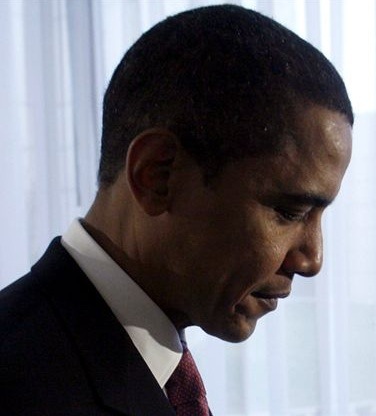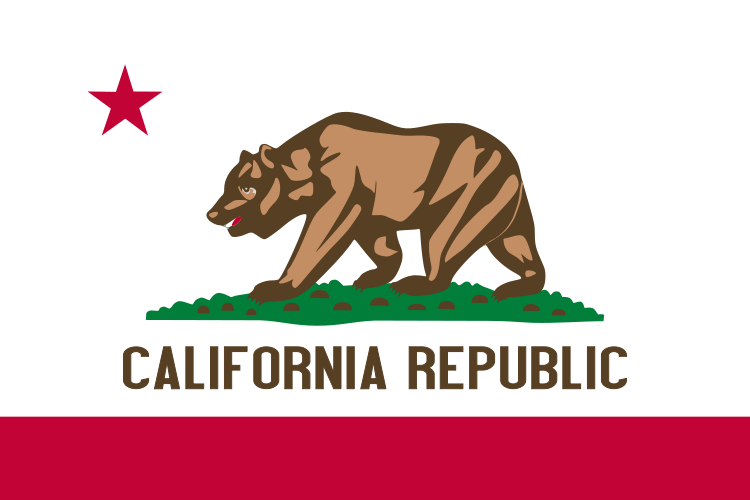 How the United States deals with the world around us has been the principal province of the president, for as long as there has been a U.S. It is an area in which most presidents learn it on the job, as was the case for Presidents Reagan & Clinton. In other circumstances, presidents bring a strong policy background to the job, such as was the case with President George H. W. Bush. (His son, President Bush, doesn’t seem to have learned anything, not really having understood anything prior to having taken office.)
How the United States deals with the world around us has been the principal province of the president, for as long as there has been a U.S. It is an area in which most presidents learn it on the job, as was the case for Presidents Reagan & Clinton. In other circumstances, presidents bring a strong policy background to the job, such as was the case with President George H. W. Bush. (His son, President Bush, doesn’t seem to have learned anything, not really having understood anything prior to having taken office.)
Senator Barack Obama is only a little older than me. Neither of us can seriously have understood at the time all of the implications of the Vietnam War, but both of us became well enough aware of the world around us to understand what was happening during the Carter administration (he might have even gotten it during the Ford administration). He has spent some of his life outside of the United States, and he has spent some of his life in the time of the Cold War.
Senator John McCain is of a different era. His views are informed by his having served in the Vietnam War and been captured and held by the Vietcong. There are few people on earth who can relate to his nearly unique experiences. McCain spent most of his life with the Cold War, and he was born outside of the United States.
Both of these men have interesting perspectives on foreign policy, but to be sure John McCain has been there a whole lot longer. Which positions should we judge? My own areas of interest revolve around the reconstituted Soviet Union, how we handle the Middle East, and how we engage the developing world. I am also interested in continued development of international relationships to reduce cybercrime and cyber-terrorism. As an expatriate foreign policy probably impacts me more than domestic policy, which is why it’s up front next to education. But these days that should be the case with more Americans. Our new found isolation in the world has empowered bad actors, like Hugo Chavez.
Senator McCain has been a strong proponent of America following international law and norms. As a former prisoner he saw what happened personally when those norms weren’t followed. The senator has always expressed strong concern about the way the Bush Administration treated detainees in Guantanamo Bay, and advanced legislation against such reckless behavior.
Senator McCain supported former Secretary of Defense Donald Rumsfeld and President Bush on both their decision to go to war and initial tactics. This to me represents a remarkable failure on his part, because Mr. Rumsfeld failed to ask the very question that most foreign policy experts would ask: what happens after you invade? We take over and then what? The departure from the Powell Doctrine of overwhelming force to “shock and awe” only worked until the shock and awe wore off, if it worked at all. The actual justification for the war is now thoroughly debunked, and the next president will have to clean up this president’s mess.
Senator McCain has been very vocal about Russia’s invasion of Georgia. Here I am entire agreement with him, and I would perhaps have gone farther. Russia has for years lost its luster to me, and the current president has lied – repeatedly – about Russia’s intent. It’s all about reasserting Russia’s position as a super-power, taking control of her oil, and using economics as a policy weapon against the west. As I wrote previously, we brought this on ourselves. McCain has been there early on, as it is in his nature to address such threats.
Senator Obama has made statements to the same effect as of late, but has otherwise taken a less prominent stance. Sometimes that’s not a bad thing. If the current president plays “bad cop” in some way in the near future, Senator McCain will be left with fewer options than Senator Obama in January. The reverse is also true. President Bush can use the McCain’s stridency to say, “This is who you get later if you don’t solve the problem to my satisfaction.” It’s right out of a West Wing Episode, and arguably out of the Iran Hostages playbook, where Iran resolved the matter the moment Ronald Reagan took office.
John McCain has also stated his preference for ending sugar, oil, and ethanol subsidies as part of his education plan. Were those subsidies tied to quality standards I might have more sympathy for them, as I did with the Swiss. Absent those, the American way of life is not on the line, and it would seem that commodity prices are doing just fine on their own at the moment, and so it’s free money to remove those subsidies.
Senator Obama is not without his own touch on foregin policy. In 2006 he sponsored a bill that eventually became law to stablize the Congo. He has stated that he is willing to meet with leaders of countries that we don’t especially love, like Cuba, North Korea, and Iran. He has been extremely cagy about the terms of such meetings and he has parsed his words carefully since. Normally such parsing drives me CRAZY, reminding me to look up what the definition of is is. The art of foreign policy, however, is talking out of both sides of one’s mouth. Senator McCain and our current president don’t do this, so far as I can tell.
And the Winner is…
 While I find John McCain’s views on Iraq far from my own, his views on Russia seem to be more aligned than those of Barack Obama, and there can be no doubt as to who has more experience. Obama has nowhere near the amount of experience of his opponent, but he did get Iraq right, and he probably has a good handle on Africa. Still I do not agree with his willingness to meet with just any ole dictator.
While I find John McCain’s views on Iraq far from my own, his views on Russia seem to be more aligned than those of Barack Obama, and there can be no doubt as to who has more experience. Obama has nowhere near the amount of experience of his opponent, but he did get Iraq right, and he probably has a good handle on Africa. Still I do not agree with his willingness to meet with just any ole dictator.
Today both candidates get passing grades on foreign policy, with McCain getting about a 80/100 and perhaps Obama getting 75. So let’s give this round to McCain.
 It is typical for candidates to speak in platitudes on the campaign trail. As the son of a teacher and a parent I look at the education system in America as creaking. The average teacher salary in California is
It is typical for candidates to speak in platitudes on the campaign trail. As the son of a teacher and a parent I look at the education system in America as creaking. The average teacher salary in California is 


 Voting in California is perhaps one of the closest experiences one can have to true democracy in America. Anything of substantial importance is presented to voters as a ballet initiative. And this is true for cities and counties within the state as well. I remember in November of 1992 voting on whether or not Officer Robert Geary should be able to bring his puppet Brendan O’Smarty in his patrol car. In 1988, my first year in California, the citizens rejected the abusive behaviors of insurance companies and voted themselves a rate cut.
Voting in California is perhaps one of the closest experiences one can have to true democracy in America. Anything of substantial importance is presented to voters as a ballet initiative. And this is true for cities and counties within the state as well. I remember in November of 1992 voting on whether or not Officer Robert Geary should be able to bring his puppet Brendan O’Smarty in his patrol car. In 1988, my first year in California, the citizens rejected the abusive behaviors of insurance companies and voted themselves a rate cut.